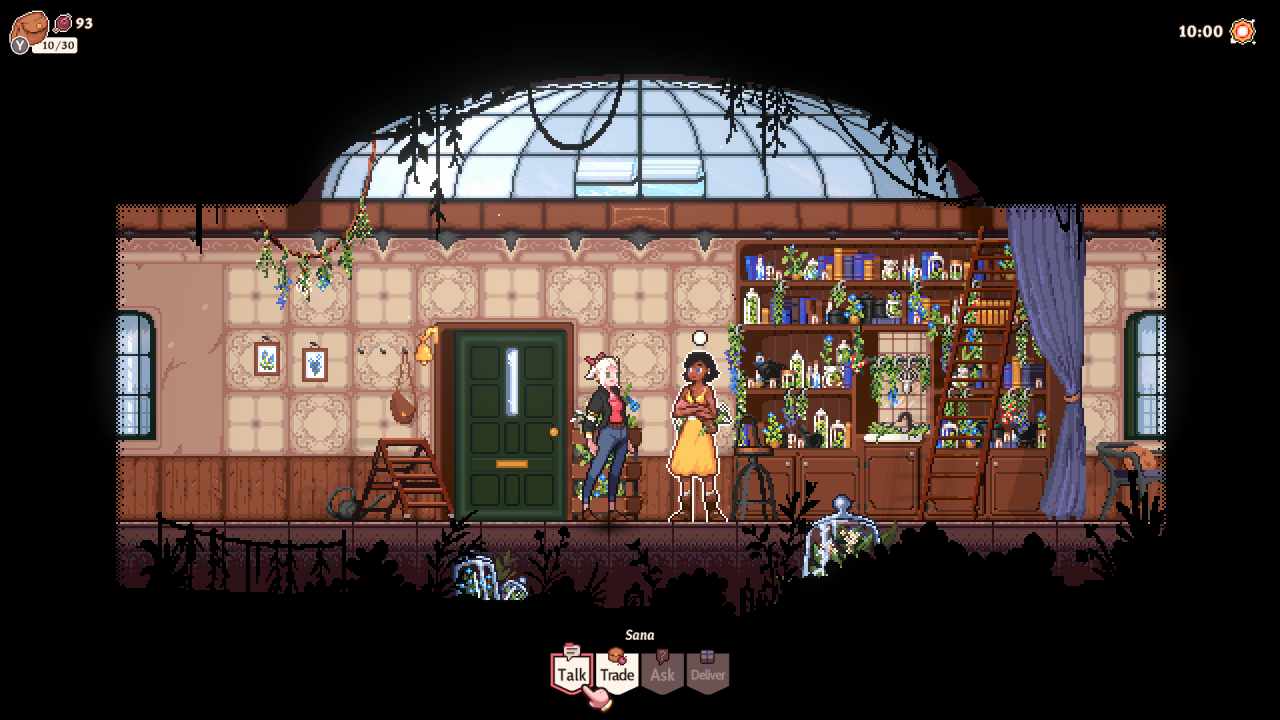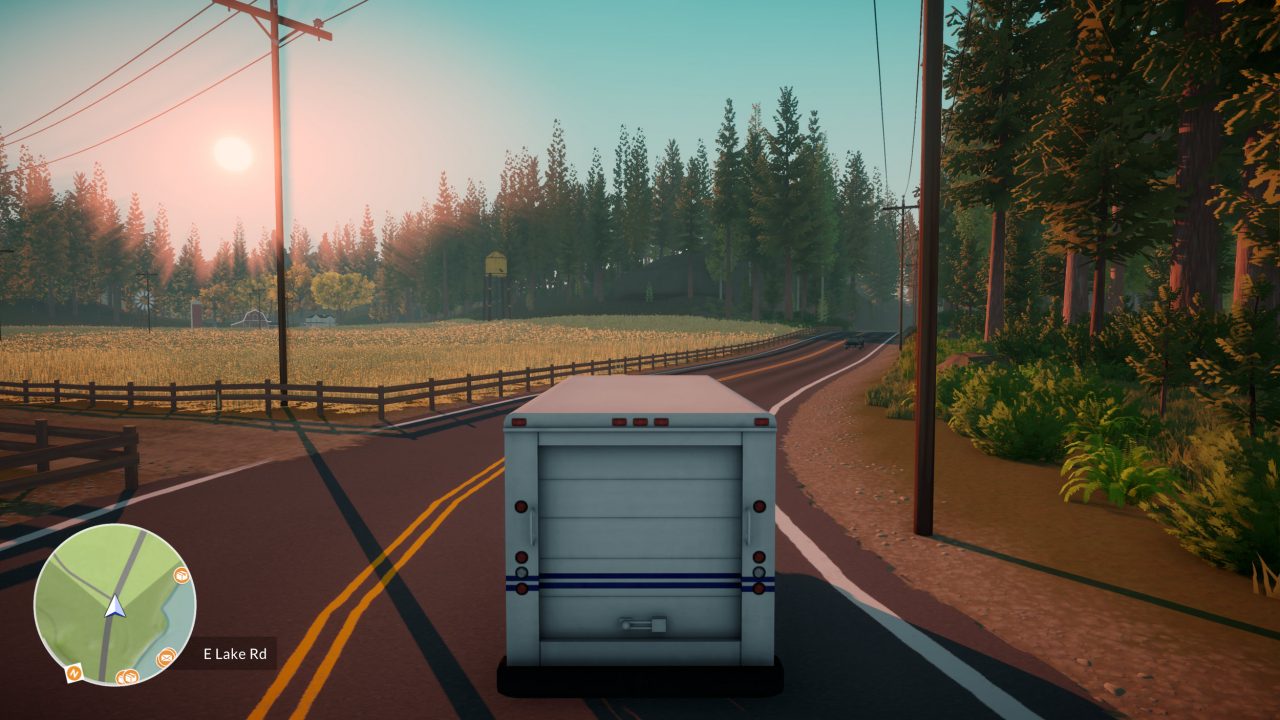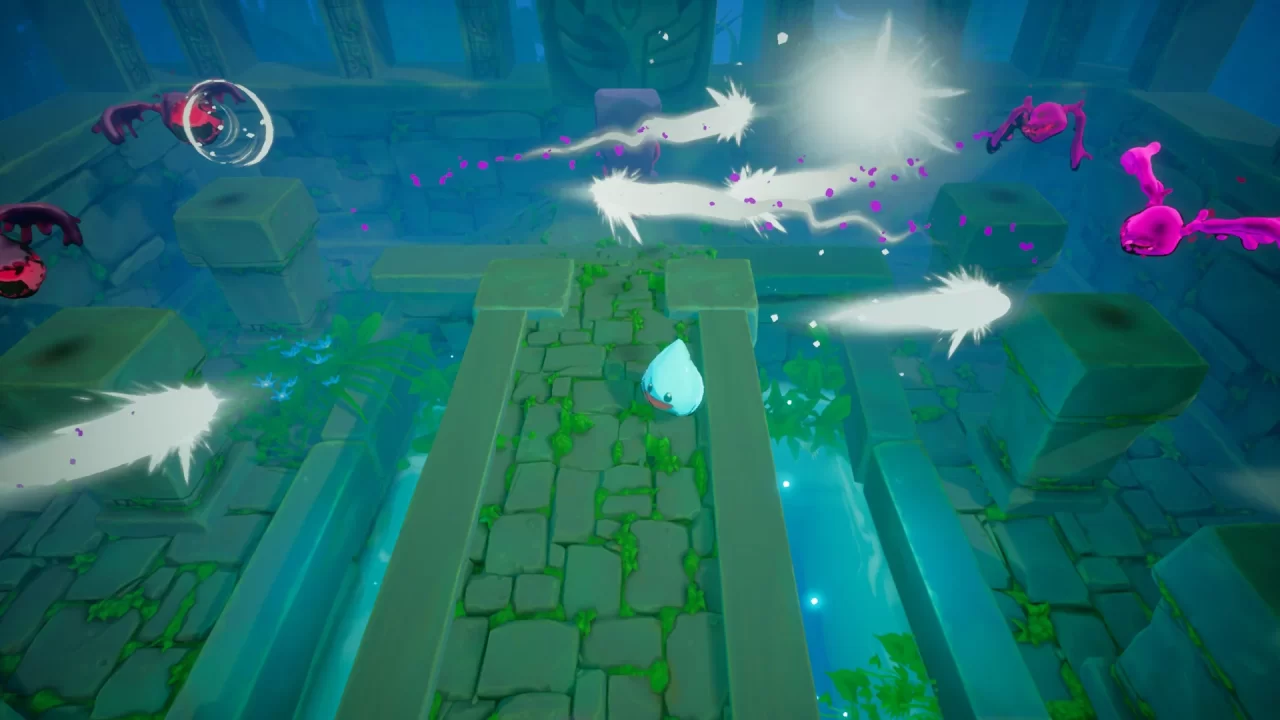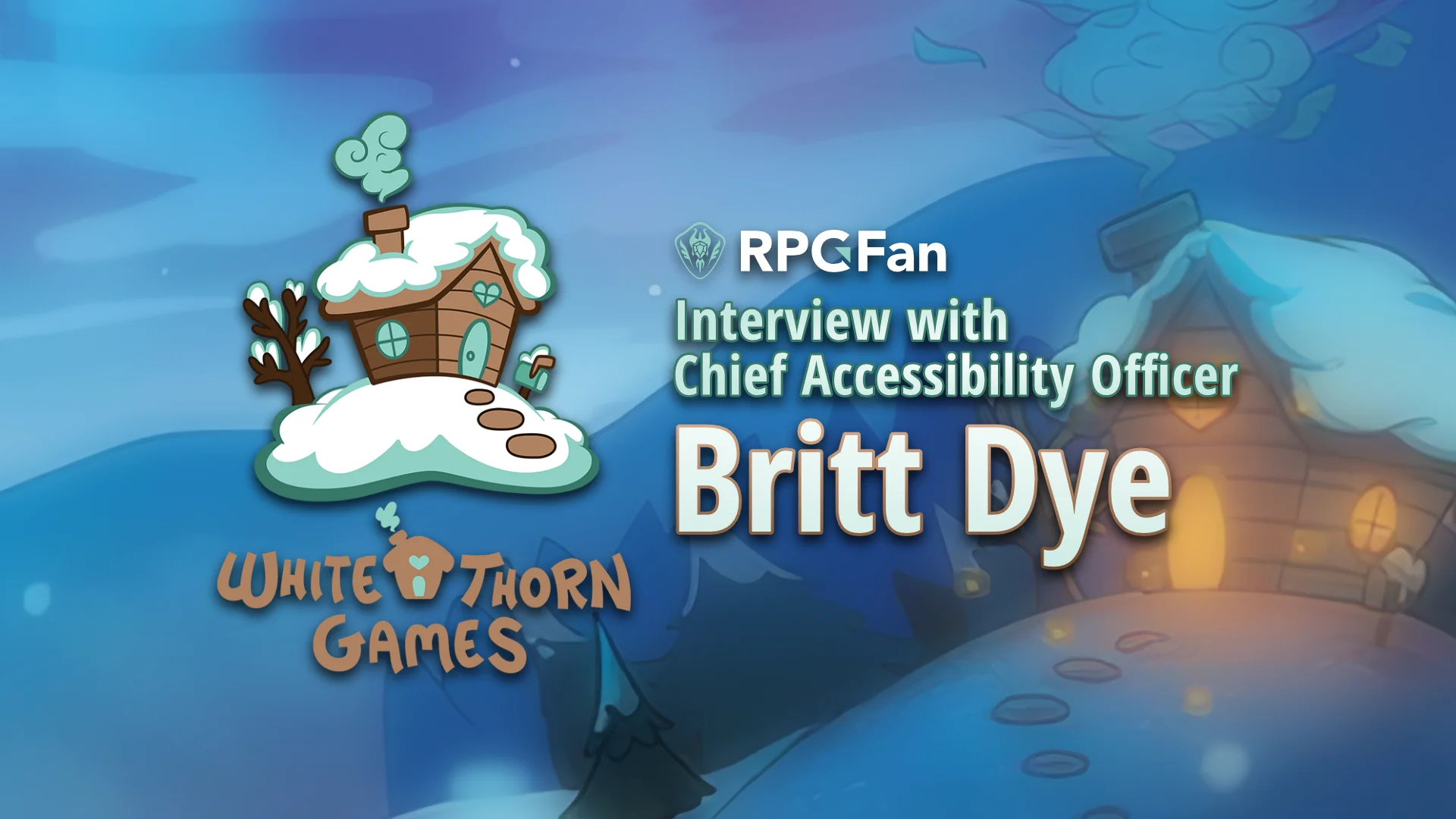Whitethorn Games self-describes as an indie game publisher specializing in games that anyone can pick up and play. They are committed to creating games that “might challenge you, they’ll respect your time, they’ll make sure you can play, and most importantly, they’ll never punish you.” As such, they have an in-house accessibility team and work with their developers to ensure their games follow that mission and are playable by as many players as possible. It’s important to note that while Whitethorn’s focus is on cozy, pick-up-and-play games, many game types can benefit from accessibility features. These features do not force a reduced difficulty or limit development teams; there’s an evaluation process and back and forth to arrive at the combination of features that allows the most access while maintaining the creators’ vision.
Leading that process for Whitethorn is Chief Accessibility Officer Britt Dye, and she was kind enough to describe her work and speak with us after our demo of Slime Heroes at PAX East this year (if you missed our preview, give it a read!). When asked to describe her team’s process with developers, she described a series of steps. First, there’s an onboarding phase where she explains the process and expectations. Next, she asks the devs about their vision and intended experience with the game. The accessibility evaluation is framed by this intended experience, and the goal is to look for unintended barriers and general issues that block that experience. They generally bring in players to test usability and general experience, and from this testing, the team generates a report to propose solutions and answer the following questions:
- What are the barriers to playing?
- What effect does this have on players?
- What player types are most impacted?
Beyond sharing this introduction, Britt was also gracious enough to answer some of our accessibility questions.

RPGFan: Are there any particular barriers or wins you’ve had working with the different devs? Any interesting stories that you’d want to share?
Britt: With Magical Delicacy, we had players who played the demo but had trouble with some of the things we already had features/options for in the game.
They didn’t think to go to the menu [to find these options], so what we did was put in prompts whenever the player encountered the barrier—say minigames, especially time-based minigames. It was like “You can turn these off if you just press this button and go to the accessibility menu and then it takes you right to the setting.” That was a really cool one that that we just did recently.
RPGFan: And you said timed minigames was the example?
Britt: Yeah, I’m sure no matter how much you set up and how much experience you have, there’s always something that a player is going to find. The more I’m working, you know, the more I learn, but I’m never going to have the life experience of someone else.
So, I think it’s really important to involve players and players with disabilities in the process for accessibility.
RPGFan: What are some ways that players can advocate for greater accessibility? I mean, I’m sure you’re always looking for testers and things like that, but do you have advice for players who want to get involved?
Britt: I know there’s some charities like AbleGamers that have players that test.
I know people are generally in the Games Accessibility Conference Discord, there’s often people looking for players, but other than that, I think just keep the conversations going. Reach out to developers. I know I’ve had devs come to me and say, “Someone asked me about this feature. What can I do to make this game accessible to this ability?” or something like that.
So, talking to devs, talking online. I think the more ubiquitous we make accessibility—the more the conversations revolve around it—the better it’s going to be for everybody. And I think people are going to start hearing it, and then it’s going to be like a grassroots type thing where people will start putting it in their games more often.
RPGFan: Okay, this is a two-part question. Are there particular accessibility options or features that tend to be more challenging to implement?
Britt: It does change based on the type of game and how the backend really looks. I’ve seen it be difficult to implement things later. Of course, the hardest thing to implement is always going to be the one that comes later in development. So, it really depends. Also, I’ve seen key binding and mapping become difficult. Some people have trouble implementing that, especially later on.
Even some things you would think, “Hey, that’s kind of an easy one to implement,” aren’t. It’s not always that easy. Anything that changes a mechanic or anything that alters a core system is going to be more difficult. So, it really depends on the game. Some of the easier ones are maybe changing font and type or adding plain text overlays, things like that. Anything that changes an art asset is going to be difficult.
RPGFan: The second part of that question, is there a game type that typically presents more challenges? I mean, We know you all seek out game types that are generally more accessible.
Britt: Yeah. There’s kind of an interesting balance with puzzle games, I think because puzzles can present a challenge for cognitive accessibility versus the difficulty the developer wants to have for their puzzles. That can be an interesting sort of creative solution type, stuff that you have to do. There’s a game called Gorogoa that I think does it decently well. After so long, they’ll ask you if you want a hint, and you can get a hint.

RPGFan: I remember many of the old point-and-click adventure-type puzzle games, some of them had that built in. If you’ve been at this puzzle for so long and you get to this point, you can choose hint level one, two, or three, for example.
Britt: Yeah. Sometimes more combat-heavy games can pose a bit of a challenge, especially if they already have a lot of buttons already assigned. It can be difficult to figure out where and how to map things or how to be able to slow down or augment combat in such a way that it makes it more accessible to players. It can be also an interesting challenge.
RPGFan: There are many forms of accessibility and features to address. Is there a way you prioritize features? How do you decide what should be in a game and the order in which you would tackle them?
Britt: There are a lot of factors I take into consideration. A lot of it really depends on the dev resources, the game in particular, and the impact that the barrier will have on players. Those all factor into priority.
I write out ideas like, how many players is this going to impact? How is it going to impact them? Is it going to block progression entirely? Is it going to make it a little bit more difficult? And then when I offer solutions, I try to do a few different ones. One might be a little bit easier to implement but not as robust. One might be a little more difficult to implement yet more robust and will solve it a little bit better. And those are all sorts of things I take into consideration. And I always work with the devs on that.
RPGFan: Do you ever cross over into accessibility for the devs’ online presence for their websites and social media, or mostly just the games?
Britt: I also talk to them about accessibility on their online posts, alt text, things like that to make their stuff more accessible. I try to take that approach and I also try to make my work accessible [and usable] to the devs themselves, as well. I take a holistic approach to it.
We want to thank Whitethorn Games’ Britt and Lisa for arranging this talk and spending some time with us at PAX East to talk about this important topic. We only scratched the surface of this discussion for now, but we hope to go deeper into this conversation in the future in general, and we may also cover some of Slime Heroes‘ accessibility features once they are announced.
In the meantime, we encourage you to check out Whitethorn Games’ accessibility page and the resources Britt pointed out in the interview to learn more and get involved. Also, please consider checking out the many inventive game titles in Whitethorn’s catalogue!




